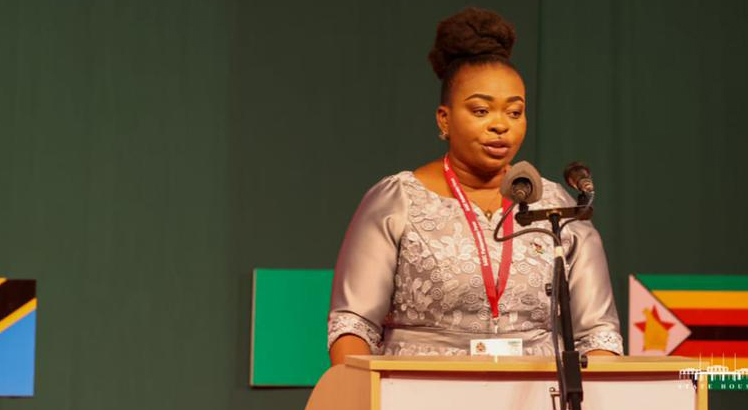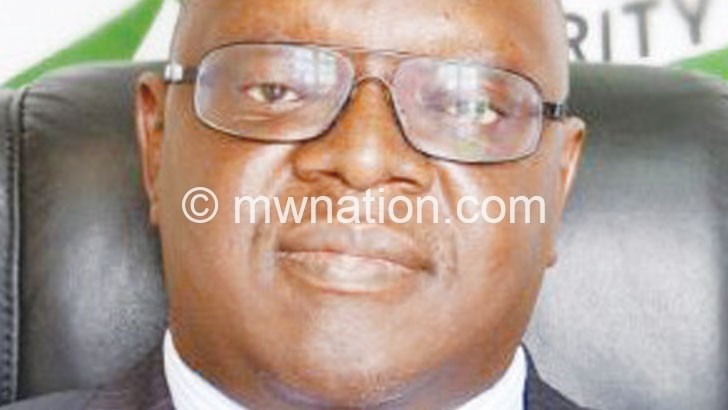President Lazarus Chakwera has decried energy challenges in the Southern African Development Community (Sadc) region, saying lasting solutions need to be found as the problems pose a threat to democracy.
The President, who is the current Sadc chairperson, expressed his sentiments at Bingu International Convention Centre in Lilongwe yesterday when he opened the 51st Plenary Assembly of the Sadc Parliamentary Forum (Sadc-PF).
He said progress cannot be achieved with erratic supply of electricity to people in the region.
Chakwera, therefore, challenged the delegates to find meaningful solutions to the energy problems rocking the region.
Gotani Hara: Let’s improve lives
He said: “Since our democracy is like a coat of many colours, we must realise that we cannot consolidate the gains thereof when our people are struggling with energy needs due to scarcity, inequitable distribution and ever- increasing prices.
“We cannot progress when we are so stuck in reverse that a programme meant to electrify our people in rural areas only exerts more pressure on the national grid that’s already failing to meet present demands.”
The President urged national legislatures to ensure that they enact green energy responsive laws allocate adequate funding to mitigate the effects of climate change and provide the necessary oversight over the energy sector. He said Parliaments should enact the enabling legal and regulatory frameworks for sustainable energy.
He said: “Energy authorities must align their policies, plans and programmes to the Sadc common vision. Institutions of higher learning such as universities and colleges, systems, and even our think-tanks must refocus their research and development lenses to inform long overdue transition from overdependence on fossil fuels to green energy while maintaining our commitment to achieve zero carbon emissions in the near future.”
Speaker of Parliament Catherine Gotani Hara said there is need for home-grown solutions to problems facing the region.
She said: “The Sadc Parliaments are committed to ensuring home-grown solutions and help governments improve lives of people.”
Economic Community of West African States (Ecowas) Parliament representative Senator Edwin Mervin Snowe, who represented Ecowas Parliament Speaker Sidie Mohamed Tunis, called on the Sadc-PF to seriously look into the energy issues and ensure engagement of the private sector to improve energy in the region.
He said Ecowas Parliament and the Ecowas region emphasise on private sector engagement as a fundamental component to the region’s goals and achieving energy efficiency.
Snowe said: “We believe that private sector engagement is a powerful force for improving lives, sustaining communities and accelerating countries towards self reliance.
“The West African Power Pool [Wapp] is a clear manifestation of public private partnership issue, covering 14 of out of 15 countries of the Ecowas region. The Wapp programme promotes power generation and transmission, infrastructure as well as coordinate power generated from member states thereby providing regular and reliable energy at competitive cost for citizens in the region.”
Meanwhile, Mzuzu University Department of Energy Systems senior lecturer Dr Maxon Chitawo also said failure to invest in energy generation is the key problem in the Sadc region.
In an interview yesterday, he said there are many potential sites for hydro, wind and solar power generation where the countries can generate energy but that is not being fully utilised.
Said Chitawo: “For example, in Malawi we have Bua River which can give us 20 megawatts [MW] , South Rukuru can give us 140MW and Ruo River which can give between 20 to 40MW. If we can build a dam on Songwe River, it can give us more than 300MW and these are just a few examples.
“Wind and solar have potential too. At Lunjika in Mzimba, there is a site that can generate 50MW from wind mills. We have so many places we should be able to invest in and increase energy generation but we are not doing so.”
In a separate interview, former Electricity Supply Corporation of Malawi chief executive officer Kandi Padambo said the country could reduce its power challenges by, among others, expanding power generation by utilising sites that have hydro power potential, adding hydro-power is the cleanest source of energy.
Chakwera committed that his administration would work on increasing the country’s electricity capacity to 1 000MW by 2025. Currently, Malawi has a capacity of 450MW produced from hydro and solar power plants. There are plans to have more hydro power stations and solar power stations in various parts of the country to boost electricity.
The Public Private Partnership Commission (PPPC) also earlier this year indicated it was in talks with a consortium of two investors who are willing to work on the $1.1billion (about K1.1 trillion) Mpatamanga Hydro Power project. If successfully implemented, the plant will add 350MW to the national grid.
The post Energy woes irk Chakwera appeared first on The Nation Online.
 Moni Malawi
Moni Malawi 

